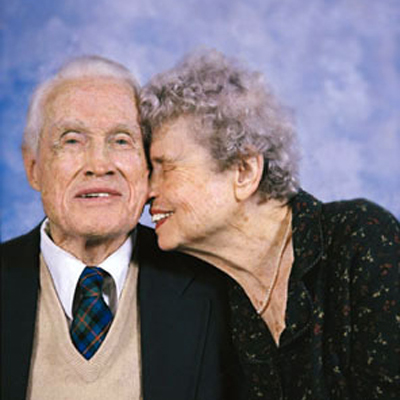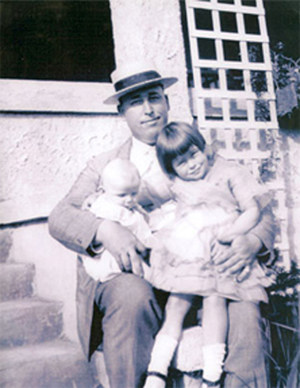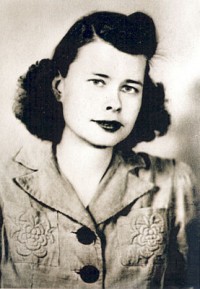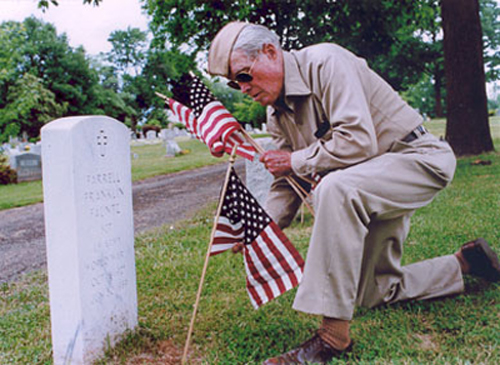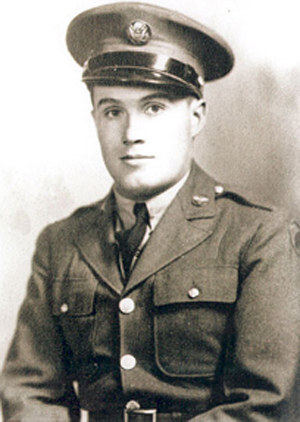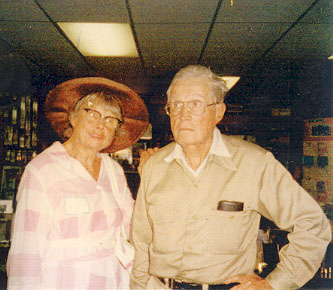Alvin Baird, the Inspiration for CIRS
Meeting Alvin
In 2000, CIRS Co-Director Dr. Steven Evans met a couple in their early 80s who were interested in the work he was doing at James Madison University. Alvin Baird had a history of attention and learning problems and was unaware of the work that had been conducted in this field.
Both Alvin and his wife Nancy were excited about the treatment development research we were doing and wanted to participate. They visited campus, attended parent training meetings at local schools and regularly asked about Dr. Evans' latest projects. In addition, they made a donation to the university to provide initial funding for the Alvin V. Baird Attention & Learning Disabilities Center. At the time, this was the largest donation the university had ever received.
Personal Experience As Motivation
The shared passion to make a difference in the lives of children with emotional, behavioral and learning problems fostered a meaningful collaboration and friendship between Alvin and Dr. Evans.
Alvin grew up in the first half of the 20th century in an affluent family with high expectations. He recounted a youth of financial privilege that was overshadowed by academic frustration. Despite access to private boarding schools and well-trained teachers, Alvin’s learning disabilities caused great struggle and family disappointment.
He explained to Dr. Evans that children with the types of problems he had did not benefit from the existence of terms such as “learning disability” or “attention deficit hyperactivity disorder.” Instead, the most frequently used labels for him and other students like him were “stupid” and “lazy.” Even in his 80s, his voice resonated with a deep disgust and frustration about his struggles with these problems. Instead of complaining or wallowing in the unfairness of his life, Alvin used these experiences as motivation for helping other youth struggling with learning disabilities.
New Center
Eventually, the university purchased an old house and converted it into an office space that served as the home base that would bear Alvin Baird's name. Dr. Evans recalls the first time Alvin saw the building that housed the new center:
"The first week we moved in, I took Alvin to dinner to celebrate. After dinner, I drove him to our offices to show him the “new center.” It was dark by the time we got there and as I pulled into one of the parking spots, my headlights illuminated the sign that read, 'Reserved Parking: Alvin V. Baird ALDC clients only.'
Alvin was silent, until in a slow, soft voice he said, “If only my father could see me now.” I do not remember much about the rest of this visit, but Alvin’s statement led me to believe that we were giving something back to this man, and it reminded me of his overwhelming desire to make a meaningful contribution."
Alvin and Nancy
Alvin did many things in his lifetime, including traveling the world, obtaining his pilot’s license, publishing a flight journal and serving in World War II. Nancy was an accomplished historian and had graduated from James Madison University (Madison College at the time) in 1939.
One of their most impressive achievements was the investment of time, money and passion they provided to so many children and adolescents with attention and learning problems. Despite their busy schedules and declining health, both Alvin and Nancy made a point of being actively involved in the center until their deaths.
Dr. Evans was continually struck by the importance and priority that Alvin placed on his weekly visits to the center.
"He and Nancy read documents for us and offered revisions, viewed educational videos we created and gave us feedback, and most importantly, they spent time with our students. Alvin did not like to miss his time with us and even resisted invitations by family members to move closer to them after Nancy died, in part as a result of his desire to stay involved with the center," Dr. Evans said.
A Historical and Personal Perspective
Both undergraduate and graduate students who worked in the center had the opportunity to know the Bairds and learn firsthand why their efforts were so important. Alvin and Nancy provided a historical and personal prospective students cannot understand from reading a textbook.
Alvin, Nancy and the students shared countless conversations, jokes, stories and personal experiences. One student made a photo album of the center and gave it to Alvin. Another played guitar and sang to Alvin during Alvin’s final few months with us. Alvin and Nancy had a profound influence not just on the center, but on all those who worked there.
It was a true joy to be part of the intergenerational learning experiences involving the Bairds, faculty colleagues, graduate and undergraduate students, the adolescents and their parents who participated in our studies and professionals from the community. Alvin’s long-term perspective provided others with an important anchor from which to evaluate how far the field has come and how each of them was enabling children with emotional and behavioral disorders to achieve success.
An Inspiring Legacy
A note from Dr. Evans on Alvin's Legacy:
During the years that Alvin was growing up, academic expectations far exceeded his ability to achieve them, and criticism was the most frequent form of “assistance”. Fortunately, we have made much progress since that time.
Many interventions have already been developed for children with these problems and still more are being developed today. Although I am easily discouraged by the seemingly slow pace at which our field advances, I am encouraged by the magnitude of change over one person’s lifetime. I am inspired by Alvin and Nancy Baird’s passion and commitment to making a difference for children.
At an age when many retire and withdraw, they became busy and dedicated to improving the lives of children. Well into their 80s, the Baird's generated excitement about our work, communicated confidence in the value of research and made every effort to be actively engaged in the activities of the center. While I will always admire the commitment, passion and humor of the Bairds, perhaps their true legacy is one of inspiration.
